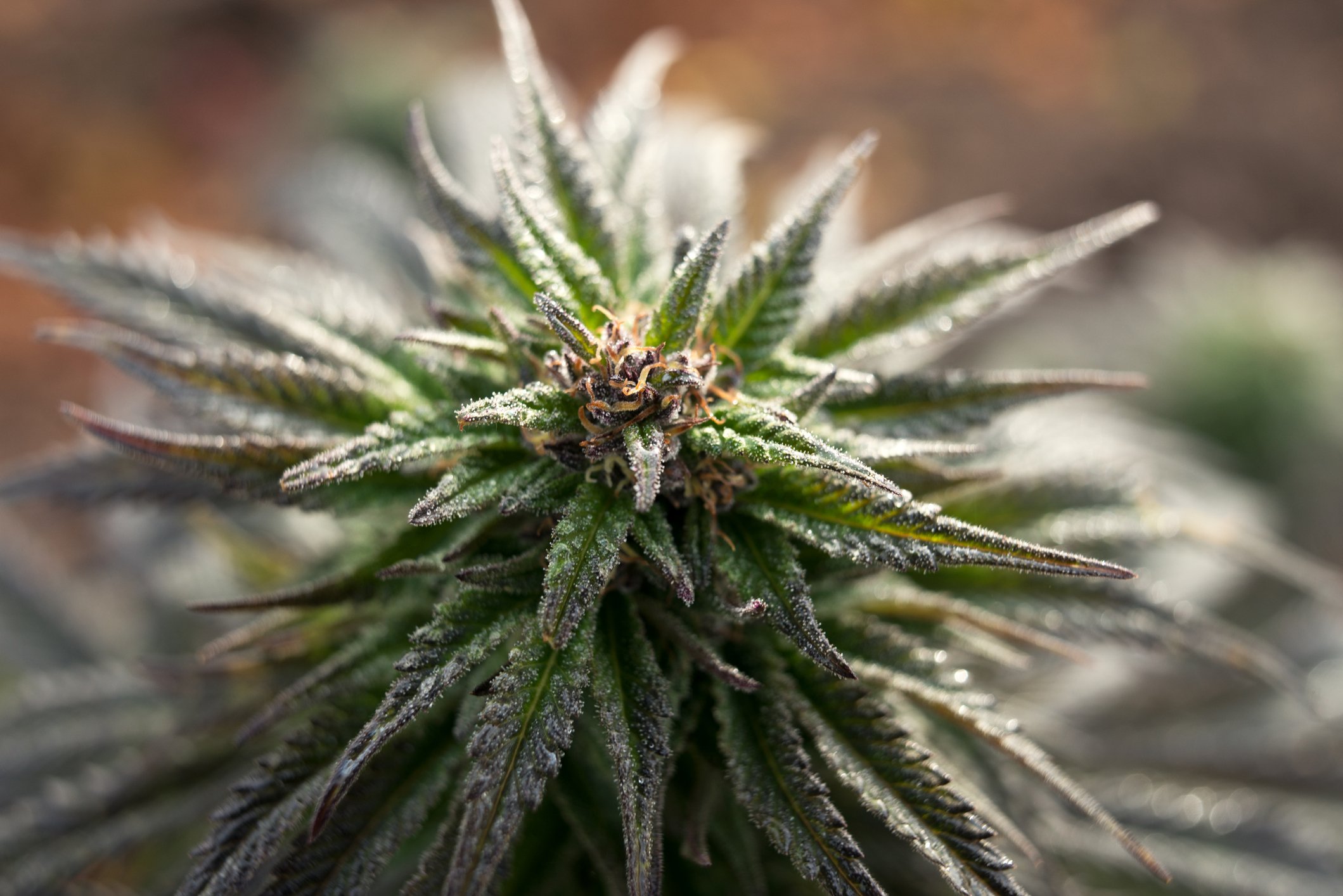The marijuana industry is coming off of what can only be described as its greatest year in history, even with many pot stocks ending the year down. That's because the cannabis movement finally gained legitimacy following the legalization of adult-use weed in Canada this past October. Becoming the first industrialized country in the world to give recreational marijuana the green light, Canada has completely changed the way investors view the weed industry.
But this doesn't mean there is an absence of hurdles for pot stocks to contend with.

Image source: Getty Images.
Going green means investors accepting a lot of risk
For example, Canadian growers are currently dealing with cannabis shortages in select provinces, which runs the risk of driving demand-hungry consumers back to illicit sales channels. While some of this supply shortage is simply the result of growers needing time to construct added capacity, quite a bit of the problem can be traced back to a cultivation license and sales permit backlog at Health Canada. Essentially, regulatory red tape is keeping the pot industry from excelling.
Financing has also been challenging for pot stocks. Although weed is legal in Canada, most banks are still leery of offering nondilutive financing options (i.e., loans and lines of credit) to marijuana-based companies. The reason(s)? These financial institutions either fear possible financial and/or criminal repercussions for offering banking services to the industry, or, because it's such a newly legal industry, they fear they won't get their money back due to a high rate of expected failures. Either way, it's led most pot stocks to raise money via bought-deal and secondary offerings, which balloons their outstanding share counts, weighs on existing shareholders, and can adversely impact the earnings per share of profitable marijuana stocks.
Profitability is also no certainty, at least on an operating basis. Since Canadian marijuana stocks report according to International Financial Reporting Standards, or IFRS accounting, they've predominantly benefited from fair-value adjustments on their crops. In other words, Canadian pot stocks that abide by IFRS accounting are constantly revaluing their crops based on their estimated worth during the growing cycle. This has led to "quarterly profits" in instances in which companies are really losing a lot of money on an operating basis. Understanding that the IFRS accounting adjustments can swing both ways, investors could find themselves in for an unpleasant surprise sooner rather than later if they ignore operating results, sans one-time benefits and costs.

Image source: Getty Images.
This could become a theme of 2019: Lock-up expiration pain
Another challenge that's mostly been under the radar until now, but which is primed to become a potential thorn in the side of marijuana stock investors in 2019, is lock-up expirations.
When a pot stock goes public via an initial public offering (IPO), or a previously private pot business completes a reverse takeover (RTO) of a publicly traded shell company to bypass the arduous IPO process, it must abide by the lock-up period. This often entails a 90- or 180-day period following the debut of a company's stock for public trading post-IPO or RTO whereby insiders (company executives and board members) and pre-IPO holders are barred from selling any of their shares. This is done to prevent soon-to-be-public companies from hyping up their business only to have insiders dump their stakes shortly after it goes public.
However, once this 90- or 180-day lock-up period is over, it frees insiders to sell as many -- or as few -- shares as they'd like. With insiders and hedge funds holding substantial stakes in a number of recently public marijuana stocks, it sets some of these companies up for a potentially big move lower.
On Jan. 15, Tilray's (TLRY +0.00%) lock-up period ended following its July 2018 IPO. Even with Privateer Holdings, which owns close to 80% of Tilray's stock, announcing that it had no plans to sell any of its stake until at least the second half of 2019, the company has nevertheless lost a quarter of its value in the week following its lock-up expiration. Remember, Tilray listed its shares at just $17 and was valued at roughly $100 the day of its lock-up expiration, providing ample incentive for insiders and pre-IPO holders to lock in gains.
Now it looks to be vertically integrated dispensary Trulieve Cannabis's (TCNNF +8.03%) turn to go under the guillotine.

Image source: Getty Images.
Trulieve Cannabis could be in for a rough day
Today, Friday, Jan. 25, 2019, Trulieve Cannabis will see about 98 million shares unlocked, which represents roughly 89% of its outstanding shares. If there is good news, last week the company announced in a press release that approximately 75.5 million of its subordinate voting shares held by the company's founders wouldn't be sold prior to July 25, 2019. Pretty much like Privateer Holdings with Tilray, this was a testament of trust in the company's long-term prospects and a pledge not to begin selling any shares until later this year.
However, that still leaves in the neighborhood of 22 million to 23 million shares that aren't part of this voluntary lock-up agreement announced by Trulieve's founders. Admittedly, Trulieve hasn't rocketed higher from its RTO like Tilray did from its IPO. Nevertheless, sellers would probably wind up locking in healthy gains from their initial investment. And, as we saw with Tilray, it doesn't take much for a lock-up expiration to send a marijuana stock into a tailspin.
I believe the real solace here is that Trulieve Cannabis is already profitable on an operating basis, which is something that very few marijuana companies can claim. In its most recent quarter, Trulieve recognized $28.3 million in sales and was profitable without the help of one-time benefits but including all operating expenses and cost of goods sold.
Trulieve recently opened its 24th dispensary in Florida and has been taking advantage of the Sunshine State's older population, which is more likely to try medical cannabis products. Since it's a vertically integrated cannabis company and owns grow facilities, it's also offering more than 125 Trulieve-branded products to its customers.
It's also worth noting that Trulieve Cannabis will be going full bore into California and Massachusetts thanks to recent acquisitions. It's unclear just how much this'll impact the company's operating expenses and ability to stay profitable, but it's clearly something to consider with Trulieve no longer a one-state pony.
Over the long run, this looks to be a promising dispensary operating model. But in the very short term, the company's lock-up period could make things unpleasant for shareholders.
Check out all our earnings call transcripts.






